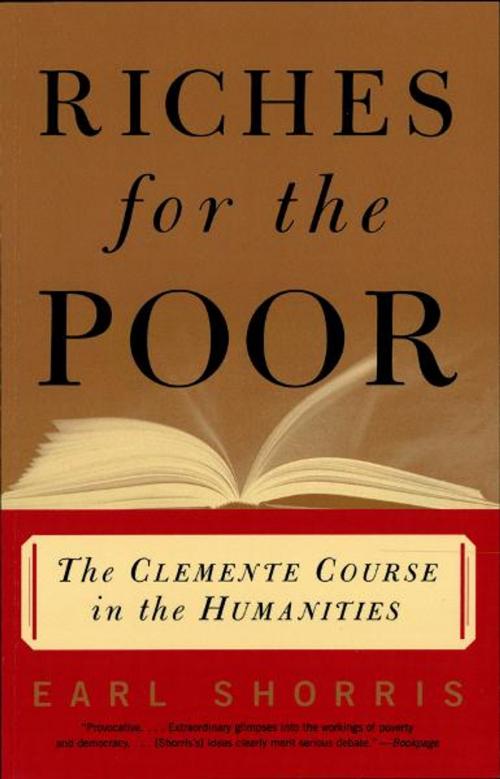Riches for the Poor: The Clemente Course in the Humanities
Nonfiction, Social & Cultural Studies, Social Science| Author: | Earl Shorris | ISBN: | 9780393343731 |
| Publisher: | W. W. Norton & Company | Publication: | September 17, 2000 |
| Imprint: | W. W. Norton & Company | Language: | English |
| Author: | Earl Shorris |
| ISBN: | 9780393343731 |
| Publisher: | W. W. Norton & Company |
| Publication: | September 17, 2000 |
| Imprint: | W. W. Norton & Company |
| Language: | English |
"You've been cheated," Earl Shorris tells a classroom of poor people in New York City.
"Rich people learn the humanities; you didn't. . . . It is generally accepted in America that the liberal arts and humanities in particular belong to the elite. I think you're the elite." In this groundbreaking work, Shorris examines the nature of poverty in America today. Why are people poor, and why do they stay poor? Shorris argues that they lack politics, or the ability to participate fully in the public world; knowing only the immediacy and oppression of force, the poor remain trapped and isolated. To test his theory, Shorris creates an experimental school teaching the humanities to poor people, giving them the means to reflect and negotiate rather than react. The results are nothing short of astonishing. Originally published in hardcover under the title New American Blues.
"You've been cheated," Earl Shorris tells a classroom of poor people in New York City.
"Rich people learn the humanities; you didn't. . . . It is generally accepted in America that the liberal arts and humanities in particular belong to the elite. I think you're the elite." In this groundbreaking work, Shorris examines the nature of poverty in America today. Why are people poor, and why do they stay poor? Shorris argues that they lack politics, or the ability to participate fully in the public world; knowing only the immediacy and oppression of force, the poor remain trapped and isolated. To test his theory, Shorris creates an experimental school teaching the humanities to poor people, giving them the means to reflect and negotiate rather than react. The results are nothing short of astonishing. Originally published in hardcover under the title New American Blues.















